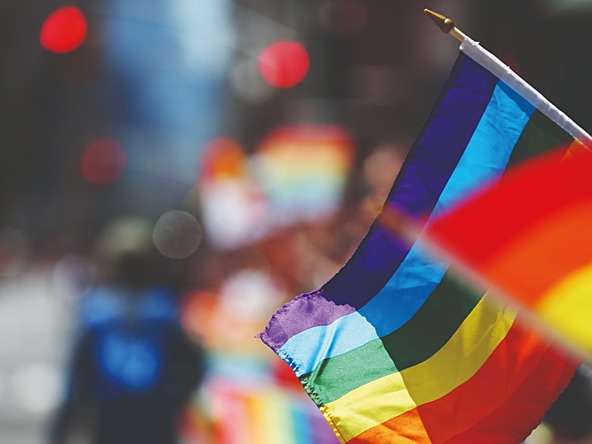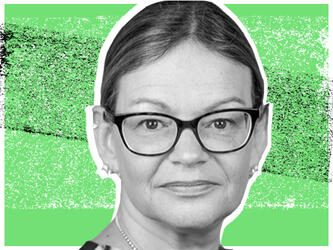Rebuilding pride: How co-creation helped Manchester Pride

From the parade to protest, through a vigil and a party in the iconic Village area, Manchester Pride has long sought to be a representation and celebration of the city’s LGBTQ+ community. The charity behind the event also works year-round to support and fund local charitable causes aimed at this group.
However, recent Manchester Pride events have drawn ire, with accusations that the charity is not delivering an event that caters enough to the needs of local LGBTQ+ people. A music festival, Manchester Pride Live, often attracted big-name stars, but was criticised for the fees spent on artists and high ticket prices. This reached a nadir in 2019 when it was headlined by Ariana Grande.
While the festival drew large crowds, many attendees were not from the LGBTQ+ community. Festival satisfaction ratings, conducted by Mustard Research, were much higher among heterosexual people than other groups – 75% for heterosexual, versus 28% for gay men. Satisfaction was lowest among older age groups ( 45+), queer, pansexual and trans/non-binary people.
“Because it was such a controversial issue, the charity felt it needed someone independent to manage the whole process,” says Anthony Shephard-Williams, director at Mustard Research, which examined views of the Pride festival and its wider impact. “We wanted to unpick the festival format, but also the charity. From the very beginning, it was about ‘pride in our future’.”
Research by Mustard, carried out in November 2021, including listening groups, in-depth stakeholder interviews and an online survey, highlighted a “disconnect” between the festival and what the charity does, according to Shephard-Williams. “A lot of people thought Manchester Pride was just one weekend in the year and didn’t see the other work the charity was doing,” he says.
An interactive consultation held to gauge views from the LGBTQ+ community about Pride’s performance proved to be fractious, with the charity even taking the unusual step of employing security. The day underlined considerable divisions in the local community, says Shephard-Williams.
The team came away with an understanding that the community felt Manchester Pride weekend had become increasingly exclusive and commercialised. More advocacy for LGBTQ+ issues and putting the community back at the heart of Pride was seen as crucial. The most important elements of Pride, according to survey participants, were deemed to be the parade ( 86%), the candlelit vigil ( 77%) and the party in Manchester’s Village area ( 74%). Only 38% backed the continuation of the music festival.
Following the research, the charity refocused on three areas for its 2022 Pride: education, campaigning and community. It also cancelled the music festival given the negative feedback uncovered during the research.
Manchester Pride will also use its platform to promote LGBTQ+ community and grassroots events throughout Greater Manchester all year, and to create more opportunities for community-led and curated events and activities at Pride.
Shephard-Williams says: “Manchester Pride really listened to us, and not just in cancelling Pride Live. There’s been so many changes made to the charity – they have a new grant-funding process that is very transparent. People can see the breakdown of the ticket price and where it is going.”
Chloe Stephenson, senior research executive at Mustard Research, concludes that the process of engaging with the community and acting on its feedback had a very positive effect, with participants pleasantly surprised the charity took feedback on board to the extent that it did.
The charity has created workshops, surveys and consultations to help it consult with its communities on the co-design of future Pride events, and has set up processes to work with local businesses and organisations.
“We learned so much from speaking to each other about our own experiences, and then speaking to the community and to Manchester Pride,” Stephenson says. “That has led to this community co-creation and co-design – it has shown me the importance of doing that in research.”
This article was first published in the January 2023 issue of Impact.

We hope you enjoyed this article.
Research Live is published by MRS.
The Market Research Society (MRS) exists to promote and protect the research sector, showcasing how research delivers impact for businesses and government.
Members of MRS enjoy many benefits including tailoured policy guidance, discounts on training and conferences, and access to member-only content.
For example, there's an archive of winning case studies from over a decade of MRS Awards.
Find out more about the benefits of joining MRS here.














0 Comments